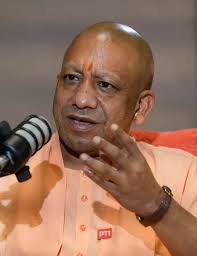Hijab row: HC Three judge bench adjourns hearing to Monday
Before the court rose for the day, the Chief Justice Ritu Raj Awasthi orally observed that that he would pass an interim order restraining everyone from wearing religious symbols until the court decides the matter. But court did not pass interim order as such

Bengaluru: The three-bench judge of Karnataka High Court has adjourns the hearing of the batch of petitions seeking to wear hijabs in colleges on Monday.
Before the court rose for the day, the Chief Justice Ritu Raj Awasthi remarked that he would pass an interim order restraining everyone from wearing religious symbols until the court decides the matter. However the court did not pass the order following objections raised by the petitioners advocate Sanjay Hegde and Devadatt Kamath.
Senior counsel of the Supreme Court, Sanjay Hegde argued that restraining the students from wearing hijab or head scarf violates the fundamental rights of the students. It not only deny the fundamental rights guaranteed under the Constitution as well as denying the educational rights for them, he argued.
He further contended that the constitutional rights cannot be left to politicians or MPs whether they are in power or out of power. Ultimately it is the Constitution which protects all citizens
"The freedom of certain groups of subjects to determine their appearance and apparel (such as keeping long hair and wearing a turban) are protected not as a part of the right of privacy but as a part of their religious belief," Hegde argued while citing Puttaswamy case in the Supreme Court.
The right to wear a hijab falls within right to freedom of expression, privacy and conscience, he stated He has also briefed the court that, if Advocate General agreed, he will sit with him to work out interim arrangement. “There is 1 operating principle in India - Sometimes we have to kindly adjust.
"Our tradition teaches tolerance; our philosophy preaches tolerance; our constitution practices tolerance; let us not dilute it.", he quoted Bijoe Emmanuel case. Mr. Hegde also cited Shiruru Matt case to support his arguments.
“I do not want to add fuel to fire. This is a State which cannot afford any kind of disturbance. This is a State which contributes maximum to the Indian economy.
It is my religious faith as a lawyer of this Court that the Constitution of India is supreme. There may be one article here, another there. Multiple interpretations of Articles 14, 21 may be there. But there is no question that it applies to everyone”, Mr. Hegde argued.
“I am requesting the State, that irrespective of dress, food, faith, they are all our girl children. This isn't just about essential religious practice. It is a case of essential education rights”, Mr. Hegde stated.
“It is easy for State to say they can go back to college. There are times when wisdom lies in not being maximalistic. The wisdom lies in taking a middle path till the Court decides the matter”, he remarked.
Starting with his arguments referring the uniforms Mr. Hegde said, “Uniform was more of school phenomenon during earlier days. Uniform for colleges came in much later. It all started in Tamil Nadu pvt engineering colleges”.
Kundapura Bhandarkar’s college students Muslim advocates Devadatta Kamat argued that the state is playing by fire. The Government Order says that the headscarf is not a part of religious practice. (Is) our fundamental rights subject to School Committees, he said.

Wearing hijab will not disturb public order, this is not a harmful practice. These are innocuous practice. It is not l ike somebody else is being harmed, he argued.
Advocate General intervened that “students should adhere to dress code prescribed by concerned college. We want all students to come to college and classes have to start. So my submission is the issues will be considered by court but in meanwhile education should commence”, he argued.
The Madras High Court which has nothing to do with Article 25. It was about prescription of dress to teachers. It was about teachers being asked to wear uniform. Not even one word about Article 25 or wearing of headscarf in that, Mr. Kamat stated.
The second judgment relied upon by government order is of Bombay High Court but the same is not applicable since it deals with all girls school and not co-education schools, he argued.
The government order is the foundation based on which colleges are prescribing that headscarf cannot be allowed. If the foundation goes, then rest can't stand. All the three decisions of the High Courts cited by government order are totally against the State, he said.
The government order suffers from total non-application of mind. The entire basis of GO is three High Court judgments which they claim held Hijab is not part of Article 25. I will prima facie demonstrate that it is not so, he contended.

















